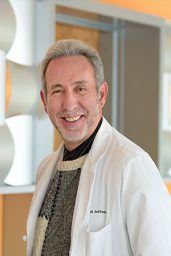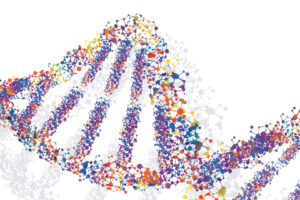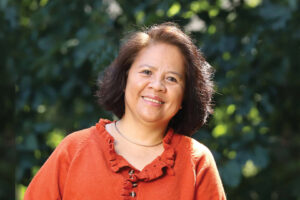Going through breast cancer treatment is emotionally and physically difficult for women. It’s also a major disruption to a woman’s everyday life.
In the case of radiation therapy, women have traditionally received daily treatments for at least six weeks. Between getting to the hospital and receiving treatment, each session can mean missing multiple hours a day of work or time with friends and family.
At The Statesir Cancer Center at CentraState Medical Center, we have begun offering an accelerated, updated approach to radiation therapy following lumpectomy surgery for women diagnosed with early stage breast cancers. This new approach, called hypofractionation, allows women to complete radiation therapy in nearly half the amount of time.
Hypofractionation has been shown in multiple studies to be as effective as conventional radiation protocols in preventing recurrence of breast cancer. It has also been shown to be equal in limiting potential cosmetic and other side effects of radiation.
For women trying to resume a normal life after cancer care, fewer treatments can make an enormous difference – in many ways. I recently treated a woman in her 70s who had long ago planned to go on a vacation with her husband to celebrate their 50th anniversary. A traditional radiation schedule would have left her with two difficult options: Postpone a long-anticipated trip of a lifetime or delay the second half of her treatments until she returned — an approach she found worrisome.
With hypofractionation, she was able to complete her treatments before the trip, allowing her to relax and enjoy herself. Her prognosis is extremely good.
How the Treatment Works
Radiation therapy is used after lumpectomy to destroy any microscopic cancer cells that may remain in the breast after surgery. In the case of early stage breast cancer, we employ external beam radiation, which uses a linear accelerator to focus powerful beams of X-rays to kill cancer cells.
Radiation therapy significantly reduces the possibility of both local and distant recurrence of breast cancer. Hypofractionation delivers the same biologically equivalent dose of radiation to the breast as traditional therapy, just in fewer days, with more radiation each day. That allows us to shorten the treatment course from about six and one-half weeks of daily treatments to roughly four weeks.
The treatment approach is appropriate for women who:
- Have lymph node-negative breast cancer — early stage cancers that have not spread beyond the breast.
- Have had lumpectomy surgery, with or without chemotherapy.
- Do not have other medical conditions that may put them at higher risk for side effects from a higher radiation dose.
Patients receive full breast radiation therapy for three weeks, and then “boost” treatments for an additional week that directly target the area where the cancer was removed. Some women experience no side effects, while others can experience fatigue and sunburn-like skin irritation.
Effective and Efficient
Clinical trials of hypofractionation conducted in Canada and England found that patient outcomes were equivalent or better to those seen with conventional schedules. The same held true with cosmetic results and side effects.
I have found that women are often very pleased to have the option of a shorter course of treatment — in terms of the time they will save, as well as other costs related to a daily trip to the hospital. Psychologically, four weeks of daily treatment can also seem much less daunting than more than six weeks.
While the hypofractionation approach has been around for roughly a decade, not all centers have adopted it. I encourage any woman undergoing radiation therapy for early stage breast cancer to discuss the possibility with her radiation oncologist.
An Advanced Radiation Oncology Center
As part of its comprehensive Cancer Program, CentraState Medical Center offers a world-class Radiation Oncology facility in The Karen Olbis Radiation Oncology Center at CentraState. The center provides the latest and most technologically advanced treatments available to cancer patients in a compassionate and supportive environment.
For more information about radiation therapy for breast cancer and all other treatment options offered at The Statesir Cancer Center at CentraState Medical Center, call 855-411-CANCER.
 Edward Soffen, MD, FACP is a board-certified radiation oncologist and medical director of the Radiation Oncology Department at CentraState Medical Center in Freehold. He can be reached at Princeton Radiation Oncology by calling 866-CENTRA7.
Edward Soffen, MD, FACP is a board-certified radiation oncologist and medical director of the Radiation Oncology Department at CentraState Medical Center in Freehold. He can be reached at Princeton Radiation Oncology by calling 866-CENTRA7.





